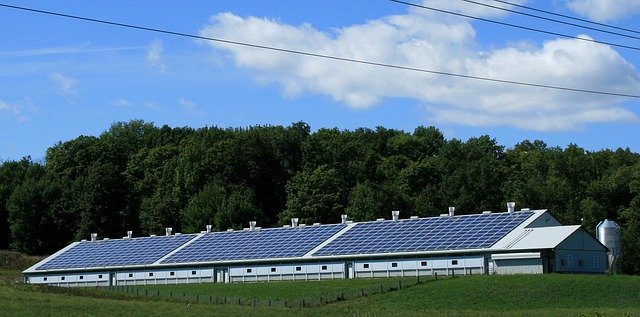
The conversion of chemical energy from fossil fuels into heat energy creates energy. This heat energy is converted to kinetic energy, which is used to drive turbines, which in turn produce electrical energy. This will allow you to cut down on fossil fuels being used in your business or home. You must also understand the environmental impacts of using fossil fuels. Alternatives to fossil fuels are necessary if you want renewable energy resources to be maximized.
Alternatives to fossil fuels
While fossil fuels are the main source of energy worldwide, the energy industry is the largest contributor to climate change. Additionally, the world's fossil fuel resources are finite. Soon, they will all run out. The human race will need to find alternative, sustainable energy sources. Solar energy is an attractive alternative. These panels can create electricity even under low light conditions. Solar energy may become the mainstream method of producing energy in the future.

Hydropower is another renewable energy resource. Hydropower generates electricity by using natural energy from water flow. Hydropower was one of many early methods of producing energy. However, it has fallen out of favor with the increasing use of fossil fuels. Hydropower is a clean, renewable source of energy that also contributes to flood control and irrigation techniques. You can use it anywhere there is water flow. It can also be used as an alternative source of energy that is affordable.
Fossil fuel burning can cause pollution
Even though industrialized nations have a pressing need for energy, the use fossil fuels has severe environmental, economic, and social consequences. Fossil fuels are a source of harmful emissions that cause global warming and water pollution. Burning fossil fuels can also cause the depletion of natural resources. These emissions cause air pollution, which has adverse health effects. It is vital to reduce pollution and conserve natural resources.
Global warming is caused mostly by carbon dioxide emitted from fossil fuel combustion. Carbon dioxide from fossil fuel combustion traps more heat in our atmosphere via the greenhouse effect. This contributes to rising sea levels, changing climates and scarcity in food sources. Natural gas is the cleanest fossil fuel but is still a major contributor to global warming.
Fossil fuels have an environmental impact
Climate change is a long-term consequence of humans using fossil fuels. Carbon emissions are caused by the burning of fossil fuels. Around 33 billion tonnes of carbon dioxide is released each year into the atmosphere, mainly through oil, coal, and natural gas production. The carbon found in fossil fuels reacts strongly with oxygen in the atmosphere to produce CO2, which acts in a blanket warming the Earth. The warming of the Earth will have many negative effects, from extreme weather to rising sea levels.

Another issue that is caused by the burning of fossil energy is air pollution. This pollution has been shown to be harmful to both animals and humans, and it is especially detrimental to children. Sulfur dioxide emitted from fossil fuels is toxic and has been linked to a variety of health issues, including cardiovascular disease and cancer. As sulfur dioxide dissolves into water, it forms sulfuric acid, which reacts with other gases in the air, causing acid rain. Acid rain can negatively impact crops by increasing soil acidity.